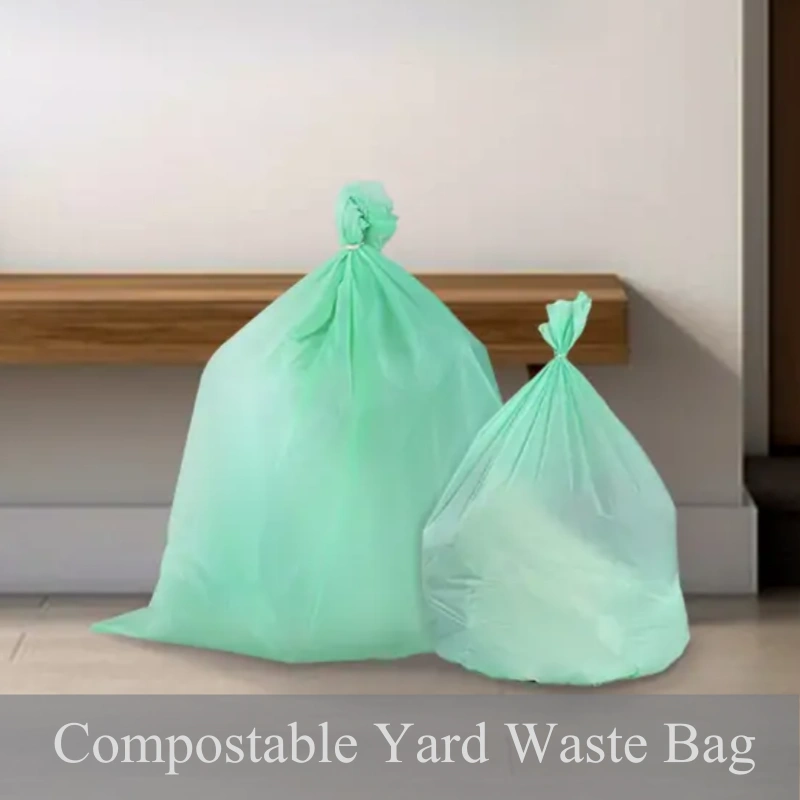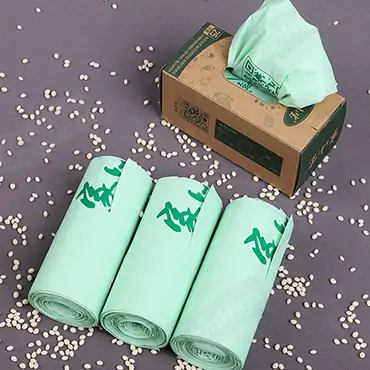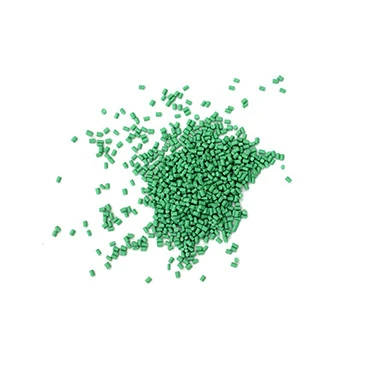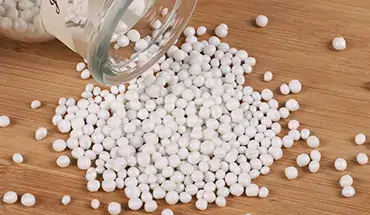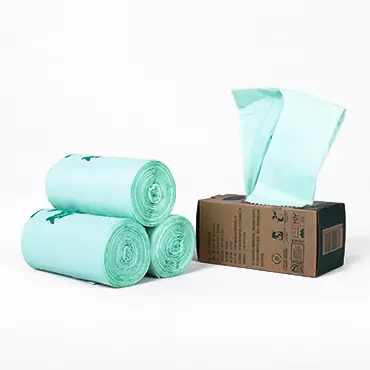PE plastic bags are cheap and waterproof, so they used to be the choice for yard waste bags, but as petrochemicals, they are extremely difficult to degrade, and burning causes air pollution. As people are more aware of the decrease in plastic pollution, paper bags and woven polypropylene bags become good alternatives. Paper bags are strong and durable when they are dry, but not when they are wet. Polypropylene woven bags can be recycled, but still they are not biodegradable. Today, I’d like to introduce another option for garden waste bags: compostable yard waste bags!
What Makes Compostable Yard Waste Bags Unique?
- Highly Biodegradable
Compostable lawn bags are made from biodegradable materials such as PBAT, PLA, corn starch, and other biodegradable plastics. These materials can be decomposed under the action of microorganisms and eventually converted into harmless substances such as carbon dioxide, water, and organic fertilizer. During the decomposition process, compostable leaf bags do not produce toxic and harmful substances and are non-polluting to the environment. This is in sharp contrast to regular plastic bags that take hundreds of years to degrade and may release toxic substances. In addition, yard waste makes up a large portion of landfill waste, much of which can be composted. The use of compostable bags ensures that fallen leaves, grass clippings, and garden trimmings are broken down into nutrient-rich compost rather than adding to the accumulation of waste. - Functional Advantages
Good aeration: The composting process requires oxygen, and compostable lawn bags can effectively ensure the supply of oxygen during the composting process, which facilitates the decomposition of microorganisms.
High durability: Although the compostable garden waste bags will decompose slowly during the composting process, they can withstand a certain amount of pressure and friction during the use period to meet the daily loading requirements. - Wide Range of Applications
Home composting: Compostable leaf bags are ideal for home use to collect food waste and other organic waste and convert them into organic fertilizer.
Organic waste collection: in public places, such as restaurants, cafeterias, etc., compostable leaf bags can be used to collect organic waste, reduce the pollution of normal plastic products in wet garbage, and can be degraded in as little as 30 days after industrial composting. - Policy Support and Environmental Trends
Policy support: With the improvement of environmental awareness, many countries and cities began to ban the use of regular plastic bags, to encourage the use of compostable bags and other environmentally friendly products.
Environmental trends: Compostable bags in line with the concept of circular economy and sustainable development, the choice of compostable bags for the leaves of enterprises or individuals has embodied a sense of social responsibility for environmental protection.
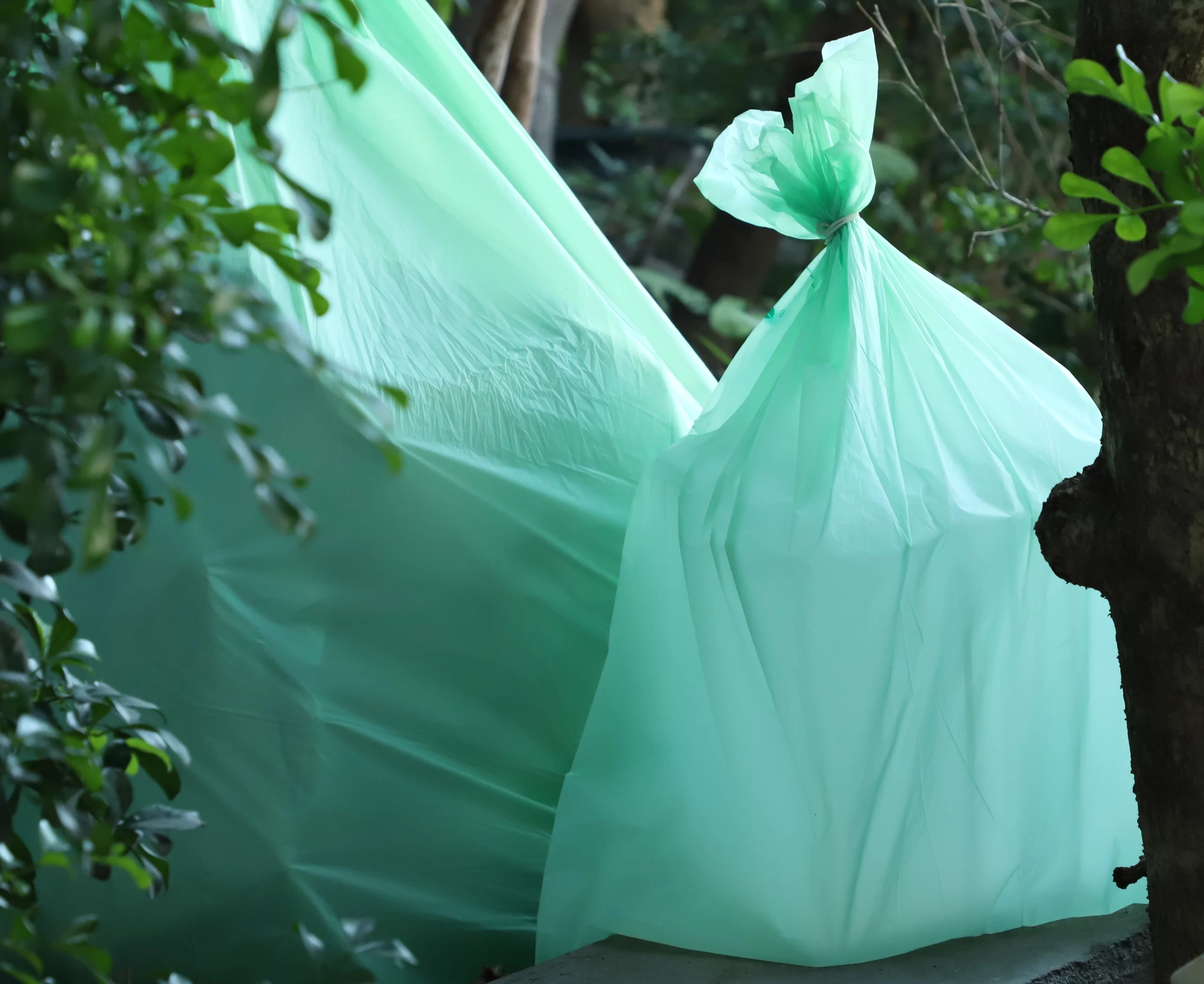
How to Pick Compostable Yard Waste Bags?
- Reliable certification. A true compostable bag should be tested and certified by a professional organization. For example: BPI, TUV, DIN CERTCO.If you are looking for a compostable garden waste bag manufacturer and supplier, ShinHigh Bio will be a good choice.
- Durability and strength. Choose leaf bags that don’t tear easily and can carry heavy, wet yard waste such as grass clippings, wet leaves, and branches. Double-layered or reinforced are ideal for heavy-duty tasks.
- Size and capacity. Biodegradable lawn bags are available in a variety of sizes:
10-15 gallons: good for small yard cleanup or kitchen waste.
30-gallon: standard size for yard waste collection.
50 gallons and up: for large-scale cleanup projects. - Moisture resistance. Regular compostable lawn and leaf bags usually can withstand a little moisture, but prolonged exposure to water may still weaken their performance. Therefore, you should select compostable leaf bags that are water-resistant if you need them.
- Post-processing. You should take into account how the bags will be disposed of in order to maximize degradation and is also an important factor in selecting the right compostable bags.
- Industrial Processing: Check to see if your local waste disposal facility will accept compostable bags, but most cities have well-established industrial composting processes so you don’t need to worry too much.
- Home composting: If you plan to compost at home, choose bags with the Home Composting Certification logo.
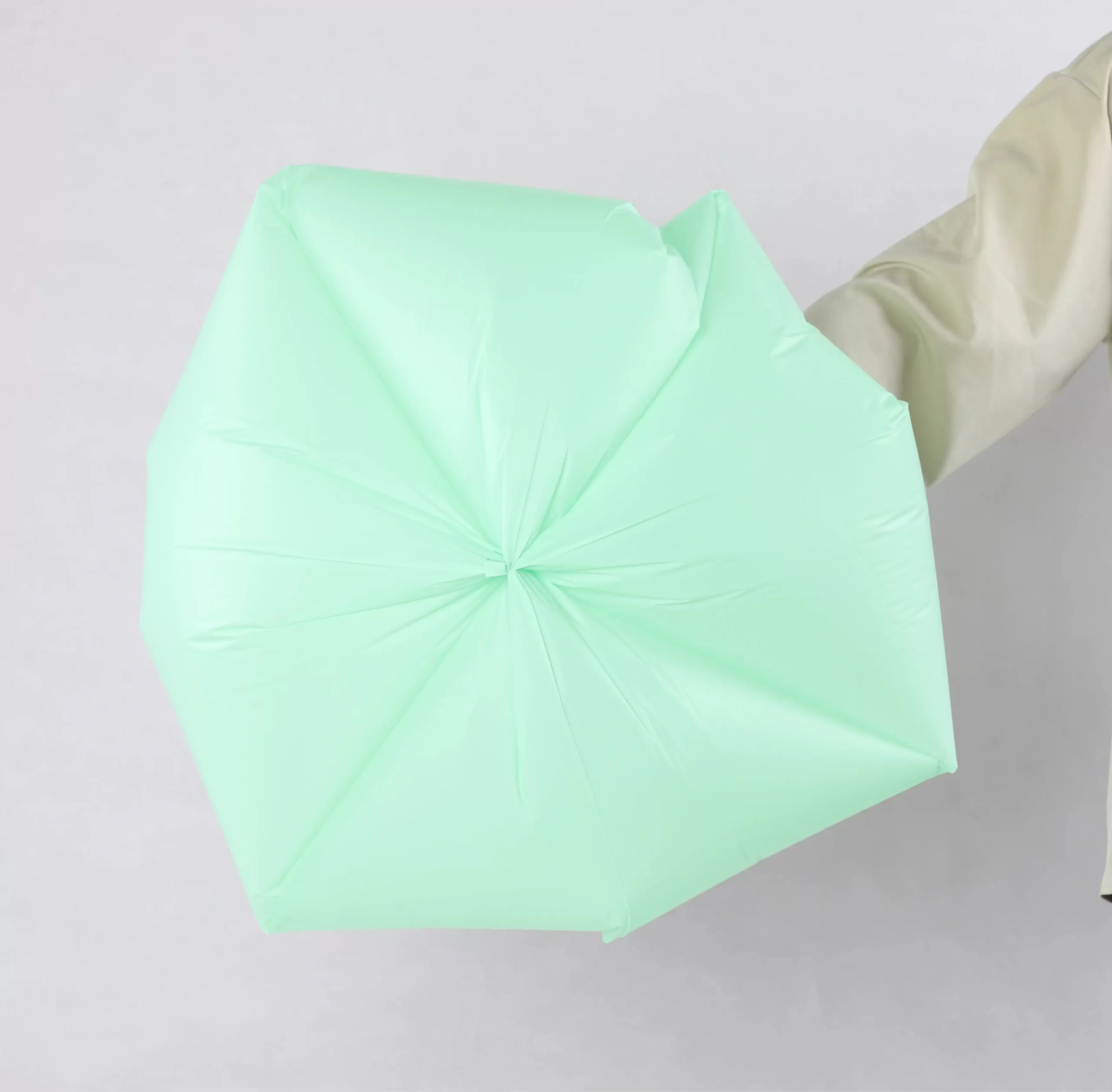
Tips for Effective Use of Compostable Leaf Bags
In order to make the most of your compostable lawn &leaf bags, here are three things to consider.
- Don’t overload
Although these bags are sturdy, overloading them can cause tears and inconvenience to your trash removal. You can also shake off excess water from leaves or grass to minimize weight and moisture. - Composting in layers
When using compostable leaf bags, layer the bags with other organic materials such as food scraps or dried leaves to speed up decomposition. - Proper storage
Biodegradable bags are sensitive to heat, light, and moisture. Store unused bags in a cool, dry place to prevent premature degradation and use within the shelf life.
Frequently Asked Questions about Compostable Lawn & Leaf Bags
Q: How long does it take for compostable leaf bags to decompose?
A: In industrial composting facilities, most bags decompose in 30-180 days. Home composting takes longer than industrial composting, but usually no longer than a year.
Q: Are biodegradable lawn bags more expensive than plastic bags?
A: While they may be slightly more expensive, their environmental benefits and compatibility with composting systems are a worthwhile investment.
Maintaining a beautiful lawn doesn’t have to come at the expense of the environment. Biodegradable lawn &leaf bags provide a sustainable way to manage yard waste while reducing the amount of waste in landfills and creating nutrient-rich, natural compost. This in-depth guide above will hopefully help you pick out the perfect biodegradable lawn and leaf bags and make the most of them in your gardening and waste management efforts. If you have questions about biodegradable bags, feel free to contact us, and let’s create a greener world together.
